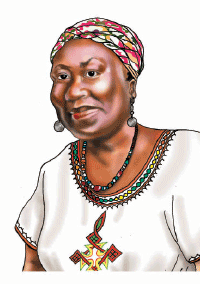In October 1996, I returned to Nigeria after a 12-month research stay at the Johannes Gutenberg University in Mainz, Germany. It was a very productive year for me, one which ended up having a significant effect on the path which my academic career took from then on. I will forever be grateful to the Alexander von Humboldt Foundation, the German organisation whose generous fellowship made that life-changing experience possible.
One interesting difference between my life in Ile-Ife and the one I lived in Germany was brought home to me clearly just within a couple of days of my returning to the country. I had gone to the post office on the campus of the Obafemi Awolowo University (OAU) where I worked, and had reason to remonstrate with the attendants for some slackness in the performance of their job. I spoke to them in an authoritarian voice, and they accepted it humbly, offering their excuses profusely. As I stepped out of the post office, a voice whispered into my ears: “When you were dissatisfied with the service you got at the post office or any other public office in Germany, what could you do? Even if you complained, would anyone have offered you the kind of apologies you just got now?” Hardly likely. It occurred to me that one of the “benefits” of living in your own country, at least a country like Nigeria, is the power you get to exercise once you have attained a certain position in society.
Part of the reason, to my mind, is that our culture is one that practically worships position. We have no problem at all with the stratification of society, and those who are on the lower strata accept that they have to “honour” those who are above them, and this they do in a multitude of ways. Since it is our duty to “show honour to whom honour is due” (one of the most frequently used expressions in our public life), you find us falling down prostrate before obas, giving titles like “Honourable” and “Your Excellency” to political office holders, never caring to reflect on what those words actually mean, nor checking to see whether the bearers of those titles portray those qualities in their comportment. When we hold public gatherings, it must be obvious that some people are “more equal than others”, like the animals in Orwell’s Animal Farm. Thus, it becomes our bounden duty to transport huge armchairs to the venue for their “excellencies” to sit upon comfortably; how could you expect them to sit on ordinary chairs?
This issue is being raised here because I am beginning to question what effect it has on our development. Is there not a certain kind of attitude necessary for the effective and efficient conduct of society’s business? When there are always people rushing to carry others’ handbags or briefcases, the society is not set up along egalitarian lines. Thus, those who are above assume an air of benevolence while those below comport themselves as beggars. A photograph was circulated online a couple of years ago with three world leaders: President Barack Obama and Prime Minister David Cameron were shown carrying their own briefcases, while then President Goodluck Jonathan held a walking stick, followed by a military detail carrying his briefcase. When a society does not work to entrench the principle of equality, how could it ensure that justice would truly be blind? Is it any surprise, then, that the conduct of people who are alleged to have looted our treasury and are currently being prosecuted by the Economic and Financial Crimes Commission (EFCC) shows that they almost feel offended for being called to answer for their actions? For many, their energies are devoted to seeking to thwart the legal process and wriggle out of it, rather than working to prove their innocence.
Whenever I raise these issues, as I did recently during a live radio interview, people always raise the culture flag, insisting that showing respect is an important aspect of our culture. I hope I am not coming across as someone who despises our culture; far from it. But I believe very strongly that it is our responsibility to interrogate our culture in the light of our current realities. Culture itself is dynamic, and there is no race on earth that has not had to change aspects of its culture given the transformations that have occurred in their society. For example, the constraints of living in big towns or even megacities entail realities that are incongruous with the practices that prevailed in the hamlets in which we once lived. A big challenge before us, I believe, is one of rationality, and I have often seen its apparent deficiency in the conduct of our affairs as a failure of our education system. We need to learn to reflect deeply on issues.
As I drove past a security post on the campus of our university sometime last week, the three men manning the gate and who were sitting under a tree all rose up to greet me as my car approached them. Why was that necessary, and how many times during the day would they rise to greet people driving past? Was that part of their job? This is another instance where one would wish to call upon our sociologists to probe this kind of social behavioural pattern and show us what consequences it may be having upon our progress as a people or as a society.

- Advertisement -
- Advertisement -
Must Read
Court halts MultiChoice from increasing DStv, Gotv subscription rates
A Competition and Consumer Protection Tribunal (CCPT) sitting in Abuja, on Monday, restrained Multi-Choice Nigeria Limited from increasing...










